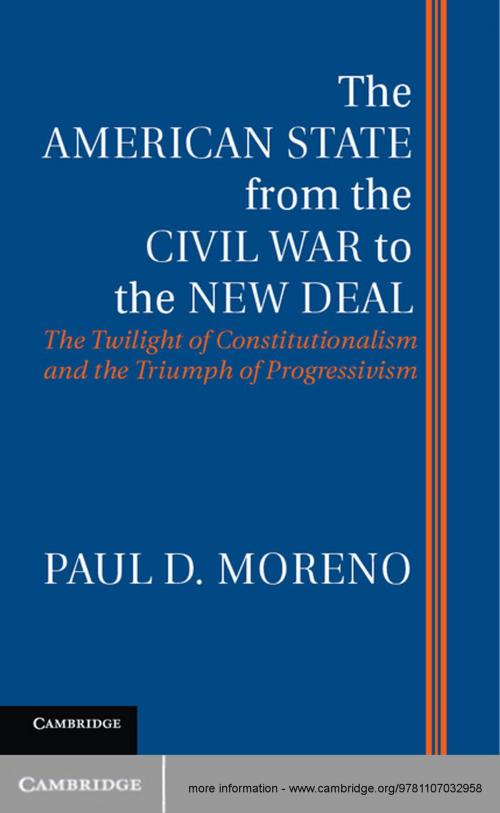The American State from the Civil War to the New Deal
The Twilight of Constitutionalism and the Triumph of Progressivism
Nonfiction, Reference & Language, Law, History, Americas, United States| Author: | Paul D. Moreno | ISBN: | 9781107065536 |
| Publisher: | Cambridge University Press | Publication: | June 28, 2013 |
| Imprint: | Cambridge University Press | Language: | English |
| Author: | Paul D. Moreno |
| ISBN: | 9781107065536 |
| Publisher: | Cambridge University Press |
| Publication: | June 28, 2013 |
| Imprint: | Cambridge University Press |
| Language: | English |
This book tells the story of constitutional government in America during the period of the 'social question'. After the Civil War and Reconstruction, and before the 'second Reconstruction' and cultural revolution of the 1960s, Americans dealt with the challenges of the urban and industrial revolutions. In the crises of the American Revolution and the Civil War, the American founders - and then Lincoln and the Republicans - returned to a long tradition of Anglo-American constitutional principles. During the Industrial Revolution, American political thinkers and actors gradually abandoned those principles for a set of modern ideas, initially called progressivism. The social crisis, culminating in the Great Depression, did not produce a Lincoln to return to the founders' principles, but rather a series of leaders who repudiated them. Since the New Deal, Americans have lived in a constitutional twilight, not having completely abandoned the natural-rights constitutionalism of the founders, nor embraced the entitlement-based welfare state of modern liberalism.
This book tells the story of constitutional government in America during the period of the 'social question'. After the Civil War and Reconstruction, and before the 'second Reconstruction' and cultural revolution of the 1960s, Americans dealt with the challenges of the urban and industrial revolutions. In the crises of the American Revolution and the Civil War, the American founders - and then Lincoln and the Republicans - returned to a long tradition of Anglo-American constitutional principles. During the Industrial Revolution, American political thinkers and actors gradually abandoned those principles for a set of modern ideas, initially called progressivism. The social crisis, culminating in the Great Depression, did not produce a Lincoln to return to the founders' principles, but rather a series of leaders who repudiated them. Since the New Deal, Americans have lived in a constitutional twilight, not having completely abandoned the natural-rights constitutionalism of the founders, nor embraced the entitlement-based welfare state of modern liberalism.















